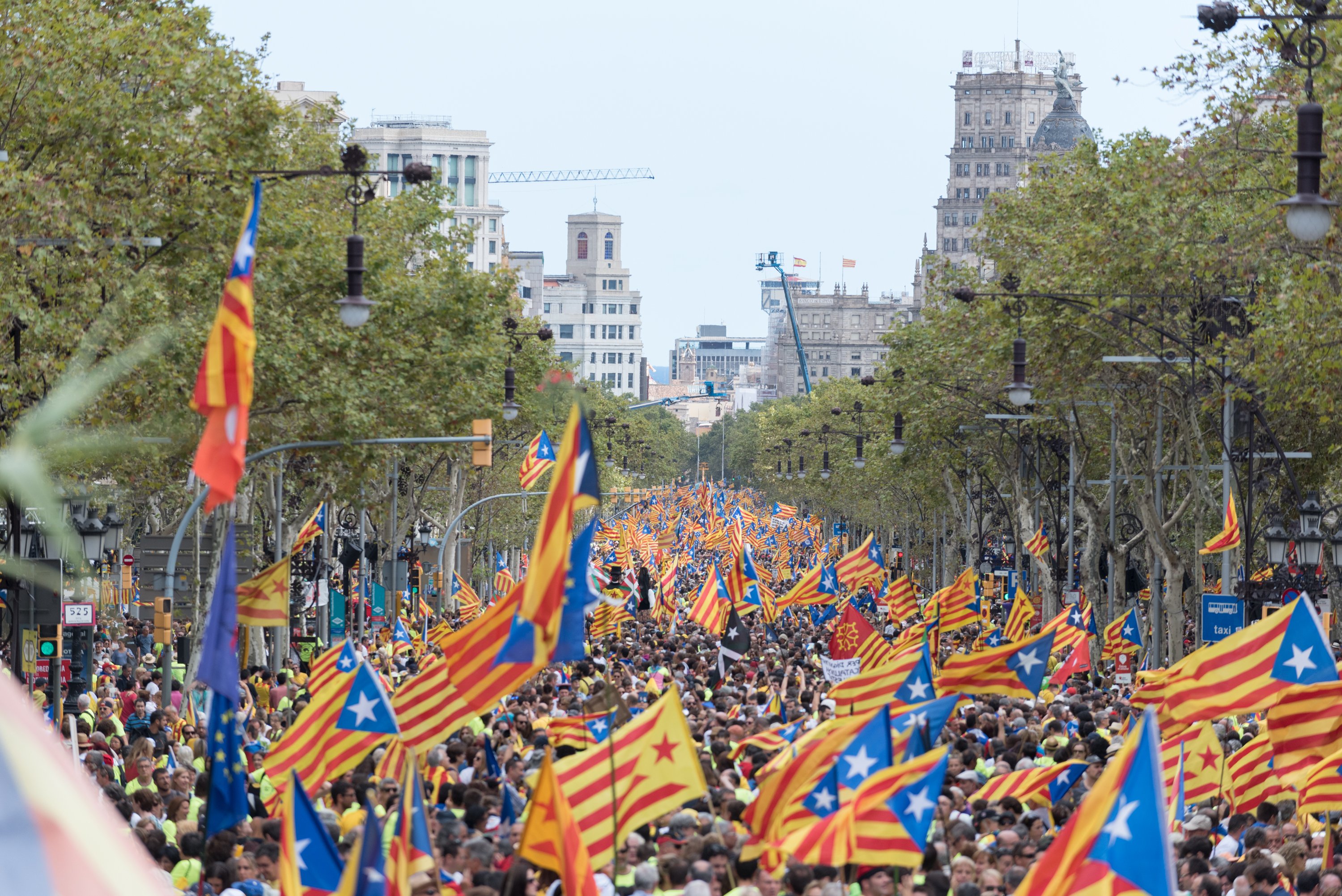If a referendum on independence were held in Catalonia now, "yes" would prevail. This is the prediction that emerges from the 2020 opinion poll conducted by the political research group Institut de Ciències Polítiques i Socials (ICPS), which calculates that 44.4% of Catalans would vote in favour, 33.3% would vote against, 0.5% would opt for a blank or null ballot paper, 18.5% would not vote and 3.3% don't know or wouldn't answer. Among those who would vote, therefore, 56.7% would vote in favour of Catalan independence, 42.6% against, and the rest, blank or null.
That very positive result for independence supporters contrasts with another part of the survey, where a vast majority of the same respondents expressed the view that the independence process will not end with Catalonia becoming its own sovereign state. Less than ten percent believe the outcome of the process will be independence for Catalonia, according to the survey.
The ICPS research unit, part of the Autonomous University of Barcelona, carried out its survey between 14th September and 14th October - the period when the Catalan president, Quim Torra, was disqualified from his office. A sample of 1,200 people were surveyed and the poll has a margin of error of 2.8%.
The result of the question on how respondents would vote "if a referendum were held tomorrow to decide the independence of Catalonia" are similar to those of the last ICPS annual polls, although support for yes has fallen slightly.
"How will the independence process end?"
In another question, respondents were asked to state, firstly, how they would like the independence process to end, and secondly, how they think it will end. Here, a more pessimistic spirit ruled than in the straight yes-no independence question, with 45.2% wanting the independence process to end with "an agreement by Spain to provide Catalonia with more self-government", 31.9% wanting it to end with independence, and 16.2% with the abandonment of the process, while 6.8% either did not know or didn't answer.
These doubts were even greater when respondents were asked how they think the process will, in reality, end: 42.2% believe that it will end with an agreement for more self-government for Catalonia, 26.7% with the abandonment of the independence process, 22.1% didn't know or didn't answer, and only 9.1% believe that it will end with the independence of Catalonia.
Assessment of leaders
The highest-rated Catalan political leader is the jailed president of Catalan Republican Left (ERC), Oriol Junqueras, with an average rating of 5.14. He is the only one who gets pass mark in the survey, as the second-best is the mayor of the town of Berga, Montse Venturós of the Popular Unity Candidature (CUP), with 4.59, followed by the CUP member of Parliament Carles Riera with 4.51.
The Catalan vice-president and likely ERC candidate in the Catalan elections, Pere Aragonès, obtained 4.49; the leader of the left-wing Comuns in Parliament and candidate in the elections, Jéssica Albiach, rated 4.2; the mayor of Barcelona, Ada Colau (Comuns), 4.1, and the mayor of Catalonia's second largest city L'Hospitalet de Llobregat, Núria Marín of the Catalan Socialists (PSC), earned a 4.01 rating.
Former presidents Quim Torra and Carles Puigdemont of Together for Catalonia (JxCat) also received fail grades: 3.93 and 3.82 respectively; PSC leader Miquel Iceta, with 3.77; the mayor of Badalona, Xavier García Albiol of the right-wing Popular Party (PP), with 2.61; the Catalan leader of the PP, Alejandro Fernández, with 2.42, and the leader of Ciudadanos in Catalonia, Carlos Carrizosa, with 2.01.

